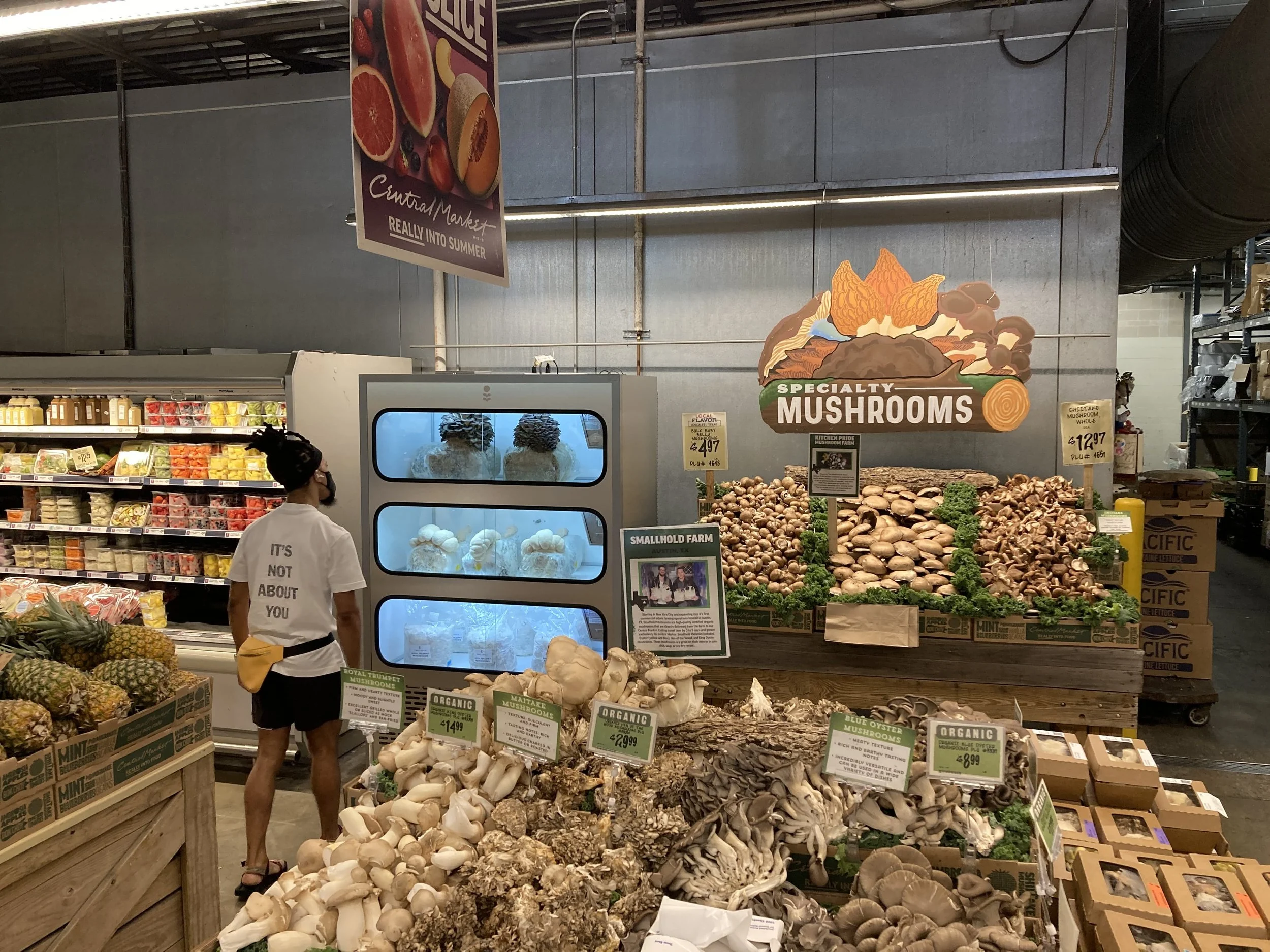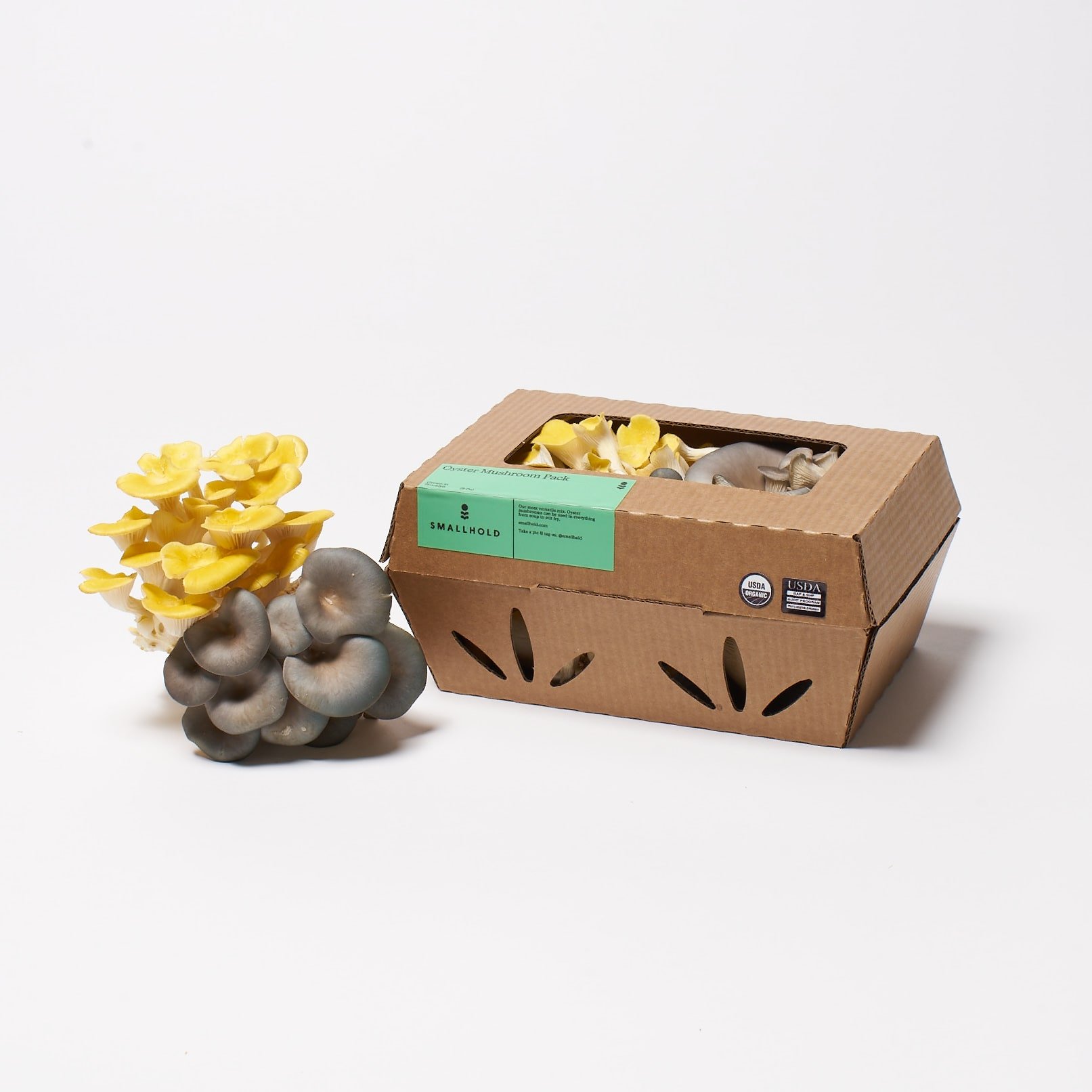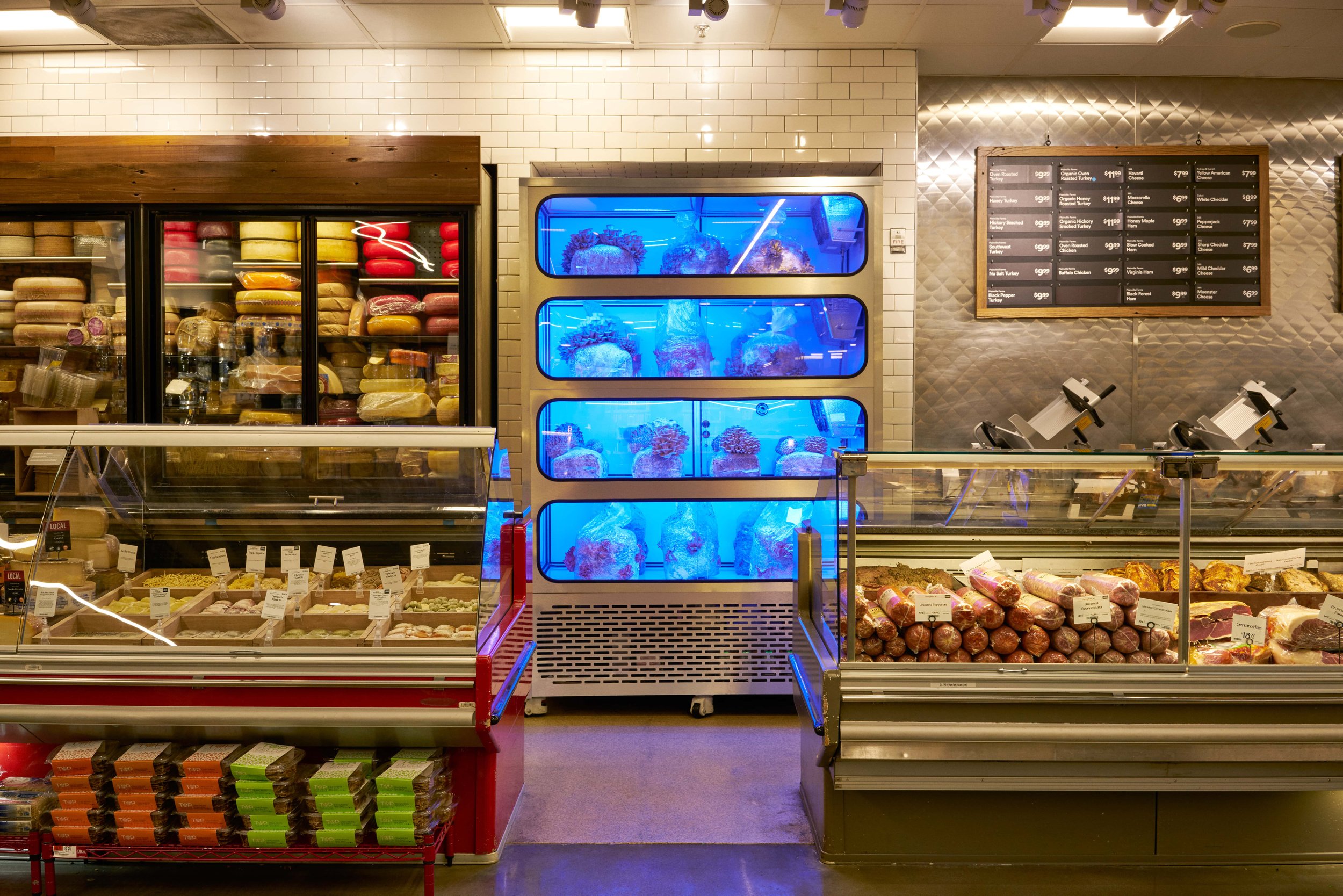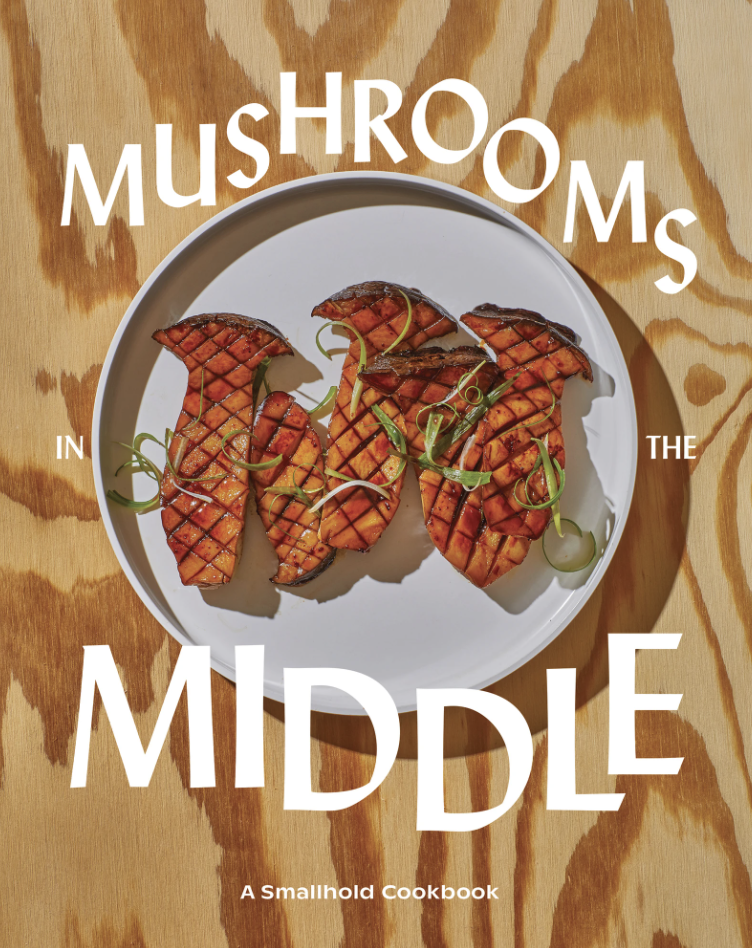Nov 9, 2021
CEA's Current Powerhouse Crop: Gourmet Mushrooms
(1)-min.jpg?width=764&height=509&name=Smallhold%2c+32+Taaffe+Place+(Please+Credit_+Zeph+Colombatto)(1)-min.jpg)
Smallhold’s Brooklyn macro-farm, image credit: Zeph Colombatto
Editor’s note: The following information is derived from an interview Agritecture conducted with Andrew Carter, Co-Founder & CEO at Smallhold, on the company’s recent $25 million Series A round. Read more about Smallhold’s eco-conscious packing, circular farming efforts, and why we named them one of the most innovative vertical farming companies of the decade.
When we say “controlled environment agriculture”, people tend to think solely of leafy greens production. They imagine high-tech glass greenhouses growing rows and rows of the freshest heads of lettuce or vertical farms growing the crunchiest kale, swiss chard, and spinach in tightly stacked layers.
For quite some time now, leafy greens production has dominated the interest of investors and producers in the CEA industry. Smallhold is here to disrupt this reality.
Changing The Face Of A Leafy Greens-Dominated Market

One of Smallhold’s mini-farms at Central Market in Texas
With macro-farms, mini-farms, and a subscription-based service, Smallhold is bringing specialty mushrooms to the masses, in the hopes of encouraging the general public to open their minds to the endless possibilities of growing and cooking with mushrooms.
Founded in 2017 by Andrew Carter and Adam DeMartino, at a time when “people didn't think mushrooms were a big enough market,” posed numerous challenges for the duo, shares Carter. “I would tell people that there was more of an opportunity with mushrooms than in lettuce, but people didn't really understand that. They only saw the large rounds [for leafy greens] that were raised by some of the bigger indoor farms.”
The last few years, particularly the Covid-19 pandemic, have changed this landscape tremendously. What was a team of 12 pre-pandemic has now changed to a team of 80+ employees across multiple states.
Carter shares that “the pandemic drew a lot more attention to mushrooms. People are more interested in using food as medicine, in eating less meat, and in growing their own food. There's a lot of trends that affect indoor agriculture, but Covid has especially affected mushrooms, and Smallhold is there to provide the high-quality product people are looking for.”
The Existing Perception Of “Fresh” Produce
-min.jpg)
Smallhold’s more eco-conscious cardboard packaging
This rapid growth since their incorporation goes hand-in-hand with Smallhold’s mission of “changing how people perceive fresh produce.” With this, the team is looking for opportunities to disrupt the food system and set new industry standards for agriculture - everything from food transportation, packaging, nutrition, and the people behind the operations.
Carter adds that “fresh produce around the United States is shipped from all over the planet. People might not realize that what's fresh in the grocery store is not as fresh as it could be. So, when you have a company like Smallhold - or other local farms that are innovating in the supply chain, growing a product that's organic, packing in eco-clamshells, paying people a livable wage, and selling at a price point that makes sense to the consumer - it raises the bar for the rest of the produce industry. We want to grow mushrooms everywhere, but if the entire industry changes their ways of growing, that is also success for us.”
Smallhold achieves this by thinking of food as an experience.
Carter explains that “a lot of the narrative around indoor agriculture is pessimistic.” It’s grim because “we desperately need to figure out new ways of growing food. But, that doesn’t make anyone hungry.” So, “we need people to enjoy eating, and to feel good about what they're eating - when they look further into the food, they should realize that it is also benefiting the planet, and better fitting for their family and the future of society.”
Celebrating A Successful Investment Round

One of Smallhold's mini-farms in the Gowanus Whole Foods, image credit: Deirdre Lewis
In October 2021, Smallhold closed their first investment round, securing US$25 million to grow organic mushrooms in local warehouses.
This success is an indication of consumer tastes changing.
Carter shares that it’s “not only the high-end consumer, it’s also a lot more conventional consumer tastes that are changing. And, this is just the beginning: talking about indoor grown, pesticide-free, and growing interesting crops and products that were seasonal but we can now grow all-year-round in indoor farms. All of this was once really exclusive, and only interested a fairly small percentage of the market. But, today, that is completely changing.”
Bringing On Game-Changing Impact-Focused Investors
(3)-min.jpg?width=302&height=201&name=Smallhold%2c+32+Taaffe+Place+(Please+Credit_+Zeph+Colombatto)(3)-min.jpg)
Smallhold’s Brooklyn macro-farm, image credit: Zeph Colombatto
This feeds into the investment landscape too. Carter shares that the biggest pushback from investors was people not thinking of mushrooms as a big enough market. Over the last year, this no longer remains a question on people’s minds. Whether it be beauty, construction, or packaging, mushrooms are everywhere. People are starting to realize the true potential of mushrooms, and “it's hard for investors to ignore.”
With the primary investors being Astanor Ventures, Energy Impact Partners, Almanac Insights, Wheatsheaf Group, and AlleyCorp, Carter explains that the team “was very selective on the investors that we worked with.” Even though “it was a very quick process, we didn't want to take money from just anyone - we wanted people that really cared about the impact Smallhold is making, and the circular nature of our company.”
Carter adds that because the team “wants to sell mushrooms and get people excited about mushrooms through a sustainable business - financially, but also ecologically - we needed investors that understood and cared about that. And so it's really exciting to bring them on. It allows us to continue to develop our technology and our supply chains, to expand to new regions, hire really amazing people, and bring these delicious mushrooms all over the country.”
Making Mushrooms The Middle Of The Plate

Mushrooms in the Middle: A Smallhold Cookbook
In their hopes of encouraging consumers to substitute meat for mushrooms, Smallhold has announced ‘Mushrooms in the Middle: A Smallhold Cookbook’. Because the specialty mushrooms that Smallhold grows can be a little intimidating to the consumer, the team partnered with numerous chefs to explore different mushroom recipes, and created beautiful visuals to go along with it!
Alongside this step, Smallhold is really looking to bring “local farms everywhere. We want to be working with local systems to integrate our substrates and our waste streams. Right now, our waste stream goes to compost, which is amazing, but we want to do even more interesting things with our waste streams: create products out of it, and bring it to specific farms and specific kinds of bioremediation projects. There are all sorts of other ways that we can fit into a circular economy. And, we want Smallhold to be at the forefront of that.”

